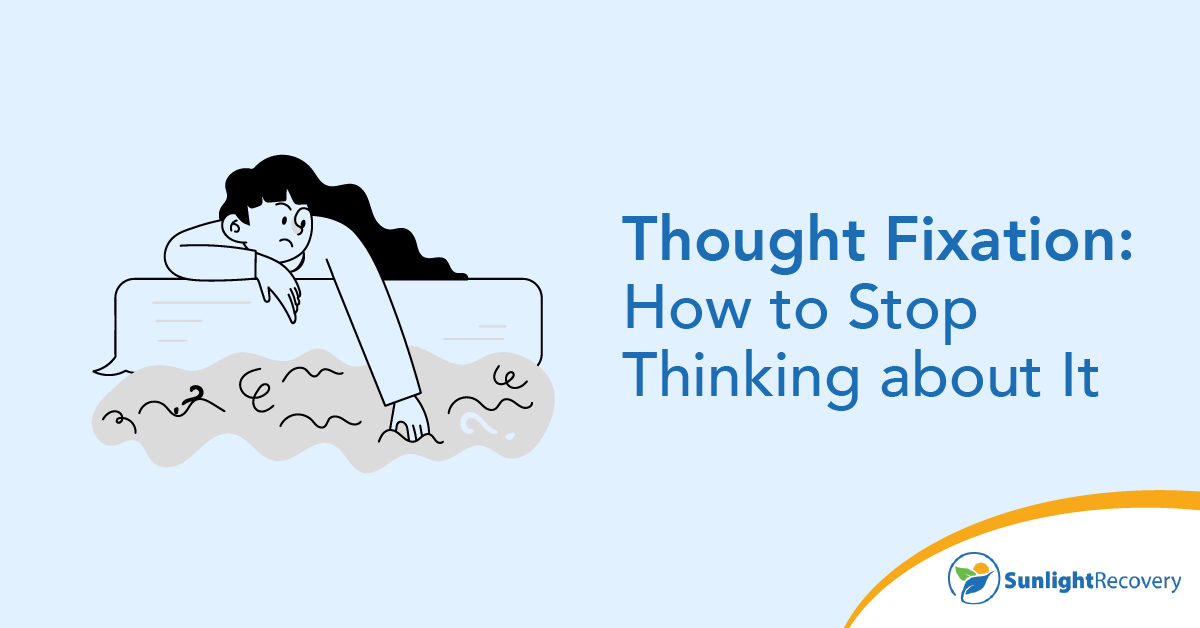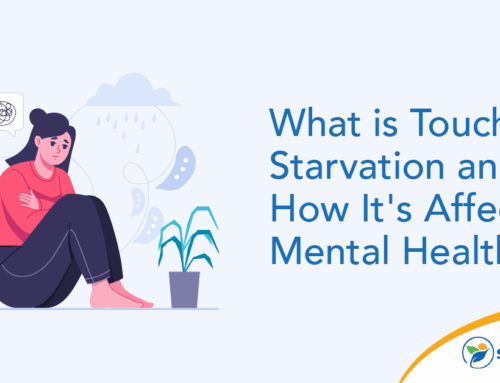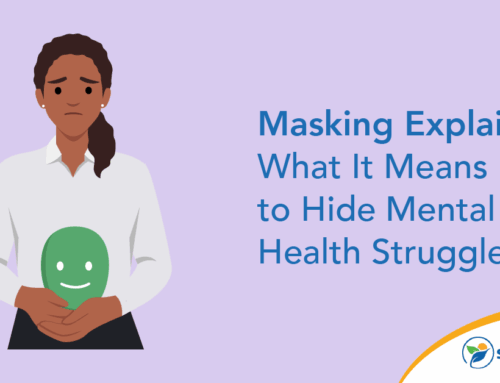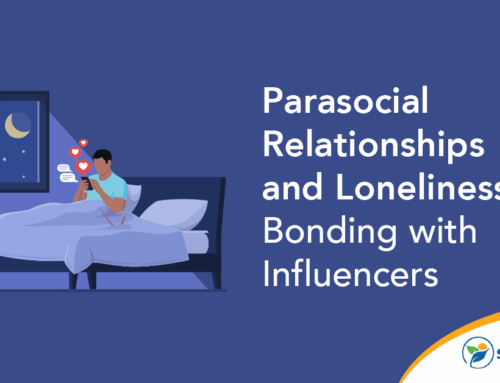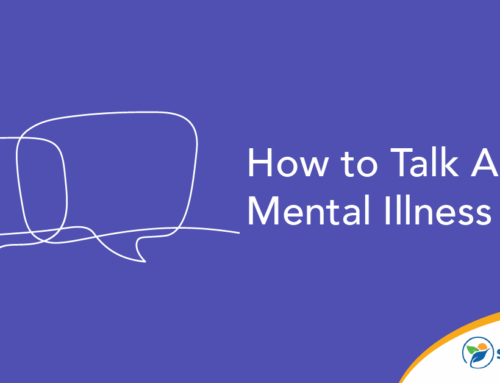If you’ve ever agonized for days over something you said at a party, an email you forgot to send or a goal you didn’t meet, you know firsthand how distressing thought fixation and rumination can be. While learning how to stop thinking about something upsetting can be challenging, self-help strategies and professional support can help you achieve freedom from the thoughts that trouble you. Let’s explore why your brain gets stuck on certain thoughts, discover effective self-help techniques and learn when to seek help.
What Is Thought Fixation or Rumination?
Rumination, or thought fixation, occurs when you find yourself repeating a negative thought. For example, you might feel unable to stop thinking about a recent relationship breakup or something awkward you did at a family gathering. While thinking about your problems can be normal, particularly in the immediate aftermath of an upsetting event, rumination can become a problem if it doesn’t resolve, causes distress or gets in the way of your daily life.
While rumination isn’t a disorder in itself, it can be a symptom of other mental health problems. Over time, thought fixation can prevent you from completing tasks, interfere with sleep and impact your physical and mental well-being.
Why the Brain Gets Stuck on Certain Thoughts
In moderation, ruminating can help you problem-solve when you’re troubled by a particular situation. In other words, your brain ruminates to gain insights that could allow you to avoid troubling situations in the future or resolve existing issues. However, repetitive thoughts can quickly become an issue when you’re no longer gaining anything useful from them.
Knowing whether your rumination is unhealthy can be difficult because many people avoid sharing repetitive thoughts, which means other people may not notice that you’re struggling. If you find yourself ruminating over multiple decisions during the day or your thoughts stop you from enjoying your normal activities, this could be a sign of an underlying mental health disorder.
Mental Health Conditions Linked to Rumination
Rumination is a symptom of various mental health disorders and often associated with major depressive disorder, a common mental health condition that impacts around 21 million American adults. People with MDD often experience sadness or hopelessness alongside feelings of worthlessness or guilt, which may make them more prone to rumination. Experiencing thought fixation can make depression symptoms more severe or persistent.
However, depression isn’t the only condition associated with thought rumination. In fact, it’s thought that most mental health disorders increase the likelihood of having distressing, repetitive thoughts. These conditions include:
- Anxiety
- Post-traumatic stress disorder
- Bipolar disorder
- Eating disorders
- Substance abuse disorders
The relationship between mental health problems and rumination is complex. You may be more likely to develop mental health problems if you’re prone to dwelling on your problems. If you’ve been diagnosed with a mental health disorder, rumination could negatively impact your recovery. Therefore, taking steps to tackle repetitive thoughts can help you manage your condition more effectively.
Strategies for Breaking the Cycle: How to Stop Thinking About Something
If you struggle to figure out how to get something out of your head, you know that simply stopping upsetting thoughts is easier said than done. However, there are things you can do to disrupt your thought patterns and reduce the distress caused by rumination.
Distracting yourself is an effective way to take your mind off something upsetting. The best distraction strategies vary from person to person, but keeping busy with something you enjoy can help keep troubling thoughts at bay. You could try:
- Reading
- Spending time with loved ones
- Watching a favorite movie or TV show
- Listening to music
- Exercising
- Visiting a favorite place
- Spending time outdoors
Talking to someone you trust about your negative thoughts can also help you gain a more realistic view of your problems. However, it’s important to choose a person to confide in wisely and consider which friend or family member can give you the most helpful perspective. Ideally, you should choose someone who can provide a supportive viewpoint without reinforcing your harmful thought patterns.
Some people find mindfulness techniques helpful for freeing their minds from upsetting thoughts. Meditation, yoga and breathing exercises encourage you to focus on the here and now while promoting calm and relaxation.
Finally, consider whether practical steps could help you move past your circular thoughts. In some situations, rumination could be a sign you need to do something to resolve a conflict or upset. For example, apologizing to someone you offended could help you move on. However, rumination can sometimes cause you to place too much importance on small or insignificant issues, so it could be worth speaking with a trusted friend or counselor first to ensure your plans are appropriate and proportionate.
When to Seek Professional Help
If self-help methods don’t work or your rumination gets in the way of daily life, you may need professional support to help you develop healthier thought patterns. Also consider seeking support if your thoughts cause you significant distress.
Getting treatment for rumination is particularly important if you have a diagnosed mental health problem or other symptoms of a mental health disorder. That’s because rumination can worsen your existing condition and make your treatment less effective. Symptoms of mental health disorders vary between conditions, but look out for:
- Feeling sad, hopeless or confused
- Mood swings
- Feeling worried, ashamed or guilty
- Lack of interest in your usual activities
- Withdrawal from important relationships
- Drug and alcohol misuse
- Tiredness and lack of energy
The best treatment for rumination depends on your preferences, your symptoms and whether you have a preexisting condition. You can start the road toward recovery by speaking to a trusted health care professional, therapist or counselor. Your chosen professional works with you to determine the most suitable treatment plan for your needs, which may include talking therapies, medication and lifestyle changes.
Building Healthier Thought Patterns
At Sunlight Recovery, we understand that rumination and thought fixation can significantly impact your well-being and relationships. When you work with us, we provide effective, evidence-based treatments to help you learn how to stop thinking about something and achieve calm. Contact us today to discuss our treatment programs and take the first step toward a happier, healthier future.


